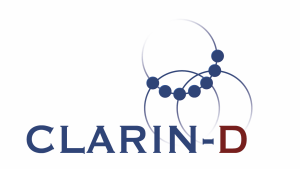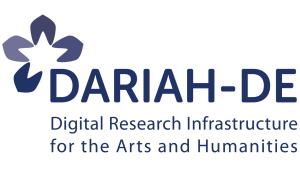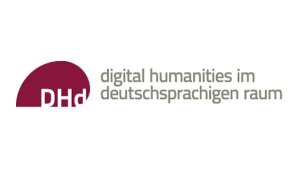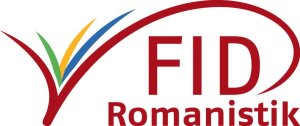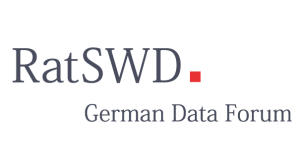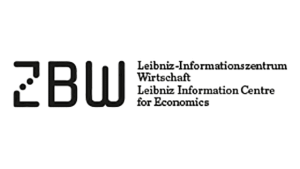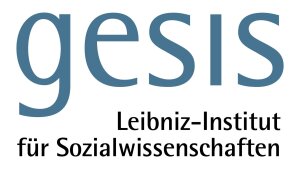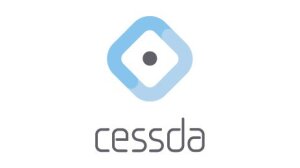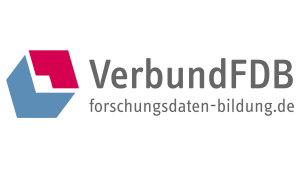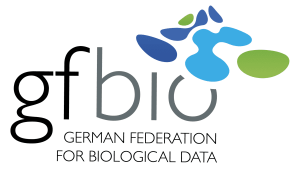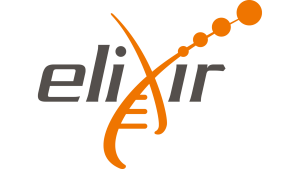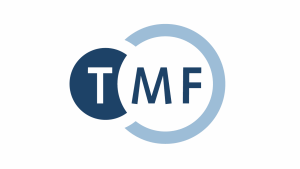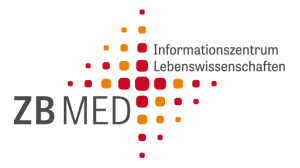
For some disciplines, there are organizations providing specific support for research data management (RDM). This includes general information on RDM in the discipline, counseling, templates for data management plans, services for archiving and publication of research data as well as training material on the topic. On this site, you find a list with discipline specific offers.
Humanities
Social and Behavioral Sciences
Life Sciences
Concerning Open Science, the webpage Open Research across DisciplinesExternal link of the UK Reproducibility Network provides case studies, examples of open research practices, and links to resources for support (open methods, data, outputs, etc) for certain disciplines.
Humanities
CLARIN-D Logo
Graphic: CLARIN-DCLARIN-D
CLARIN-D is a digital infrastructure for language and speech resources for the Humanities and Social Sciences, and it is here to stay. The CLARIN-D expertise is built on a network of specialist institutes of international repute. The Virtual Language ObservatoryExternal link can be used to find suitable research data.
Website of CLARIN-DExternal link
DARIAH-DE Logo English
Graphic: DARIAH-DEDARIAH-DE
DARIAH-DE supports the humanities and cultural sciences working with digital resources and methods in research and teaching. For this purpose the association is developing a digital research infrastructure for tools and research data and is developing materials for teaching and further education in the field of digital humanities (DH).
DHd Logo
Graphic: DHdData Centers Working Group of the Network for Digital Humanities in the German-speaking area (DHd)
Since 2014, the Data Centers Working Group (WG) has been part of the Network for Digital Humanities in the German-speaking area (Verband DHd – „Digital Humanities im deutschsprachigen Raum“External link). It consists of 27 research data centers in the humanities, with 17 of them having their own research data management infrastructures.
In order to improve the accessibility of individual research data management services, the WG has compiled a service catalog (German)External link that explicitely addresses researchers in the Humanities. The catalog provides an individual presentation of all data centers and the respective competencies as well as a bundling of expertise and service offers in the network.
Website of the Data Centers Working Group (German)External link
FID Romanistik Logo
Image: FID RomanistikFachinformationsdienst (FID) Romanistik
The Fachinformationsdienst (FID) Romanistik has created an information service for Romance scholars with general and subject-specific information on research data management. The site offers a compact overview of what is understood by (Romance Studies) research data, how and where to search for relevant datasets, and provides pointers for working with research data. The FID Romanistik operates its own databaseExternal link, in which research data with Romance studies relevance are listed and can be searched, and provides tutorialsExternal link on how to save your own research data in freely available repositories and how to make them findable.
Website of FID RomanistikExternal link
Social and Behavioral Sciences
RatSWD Logo English
Graphic: RatSWDGerman Data Forum (RatSWD)
Established in 2004, the RatSWD (Rat für Sozial- und Wirtschaftsdaten) is an independent council. It advises the German federal government and the federal states (Länder) in matters concerning the research data infrastructure for the empirical social, behavioural, and economic sciences. The German Data Forum (RatSWD) has 16 members. Membership consists of eight elected representatives of the social, behavioural, and economic sciences and eight appointed representatives of Germany’s most important data producers.
The German Data Forum (RatSWD) offers a forum for dialogue between researchers and data producers, who jointly issue recommendations and position papers. The council furthers the development of a research infrastructure that provides researchers with flexible and secure access to a broad range of data. The German Data Forum (RatSWD) has accredited 34 research data centres and fosters their interaction and collaboration.
The Data Search serviceExternal link allows researchers to find the data they need for their research.
Website of RatSWDExternal link
The RatSWD also provides a handout for practitioners (German)External link "Research Data Management in Small Research Projects" as well as a teaching slide set (German)External linkon its website.
The handout aims to help researchers in social, behavioral, and economic science projects get started with research data management. The focus is on individual research projects or smaller temporary project networks that want to build up a data pool and use and/or make it available in the long term, without previously relying on institutional infrastructures.
ZBW Logo
Graphic: ZBWLeibniz Information Centre for Economics (ZBW)
The ZBW is the world’s largest research infrastructure for economic literature, online as well as offline. It is affiliated with the Christian-Albrechts-University of Kiel. It supports business researchers and students in their learning, research and publication process. Its services are based on the latest findings from application-oriented research in computer science and related disciplines.
GESIS-Logo
Graphic: GESISGESIS Leibniz Institute for the Social Sciences
As the largest European infrastructure institute for the social sciences, GESIS offers advice, expertise and services at all stages of scientists' research projects. The focus of the services is on collecting research data and making them available and on related activities and information that enable the social sciences to conduct research on socially relevant issues.
CESSDA-Logo
Graphic: CESSDAConsortium of European Social Science Data Archives (CESSDA)
CESSDA provides large-scale, integrated and sustainable data services to the social sciences. It brings together social science data archives across Europe, with the aim of promoting the results of social science research and supporting national and international research and cooperation.
VerbundFDB Logo
Graphic: VerbundFDBGerman Network for Educational Research Data (VerbundFDB)
The VerbundFDB (Verbund Forschungsdaten Bildung) is a liaison of research data centres. It aims at the setup and design of a research data infrastructure for empirical educational research. For this, services in the area of research data for education will be set up and enhanced.
Through its service "Counselling, advice and training", the VerbundFDB offers, amongst others, online seminars in the series "Forschungsdatenmanagement in der empirischen Bildungsforschung" and provides the recordingsExternal link (German).
Life Sciences
GFBio Logo
Graphic: GFBioGerman Federation for Biological Data (GFBio)
GFBio is the authoritative, national contact point for issues concerning the management and standardisation of biological and environmental research data during the entire data life cycle (from acquisition to archiving and data publication). GFBio mediates expertises and services between the GFBio data centers and the scientific community, covering all areas of research data management. GFBio is establishing a business model to ensure the sustainable, long-term operation of its core services.
ELIXIR Logo
Graphic: ELIXIRELIXIR
ELIXIR unites Europe’s leading life science organisations in managing and safeguarding the increasing volume of data being generated by publicly funded research. It coordinates, integrates and sustains bioinformatics resources across its member states and enables users in academia and industry to access services that are vital for their research.
The ELIXIR-CONVERGE Research Data Management kit (RDMkit)External link is an online guide to good data management practices that provides guidelines, information, and guidance on issues - throughout the data lifecycle - for research projects.
TMF Logo
Graphic: TMF e.V.TMF - Technology, Methods, and Infrastructure for Networked Medical Research
The TMF (Technologie- und Methodenplattform für die vernetzte medizinische Forschung e.V.) is the platform for interdisciplinary exchange as well as cross-project and cross-location cooperation in order to identify and solve the organizational, legal/ethical and technological problems of modern medical research. Solutions range from expert opinions, generic concepts, and IT applications to checklists, practical guides, training, and consultation services.
Website of TMF e.V.External link
ZB MED Logo
Graphic: ZB MEDGerman National Library of Medicine (ZB MED) - Information Centre for Life Sciences
The ZB MED (Deutsche Zentralbibliothek für Medizin) is a key component of German and European information infrastructure in the field of life sciences. It is also a driving force behind the creation of an interconnected digital knowledge base. Drawing on the extensive resources of its unique holdings, ZB MED offers key opportunities for researchers to acquire information and utilise research data in the life sciences arena. ZB MED supports RDM particularly in medicine, nutrition, environmental and agricultural sciences as well as biology and bioinformatics.
